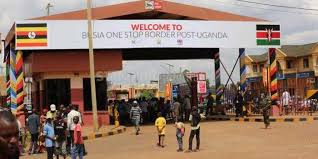
Kenya’s trade with Africa (Sh bn)
Kenya enjoyed a trade surplus of Sh154.9 billion with African countries
The country joins Zambia, Eswatini, Malawi and Zimbabwe in embracing the system
In Summary

Audio By Vocalize

Kenya
has launched the Electronic Certificate of Origin (eCOO) system, a bold step
towards enhancing trade efficiency and strengthening intra-African trade.
Launched through a partnership between the Kenya Revenue Authority (KRA) and the Common Market for Eastern and Southern Africa (Comesa), the system digitizes the registration of exporters and the issuance of Certificates of Origin.
These certificates are crucial for accessing preferential trade benefits under regional trade agreements, including C, the East African Community (EAC), and the African Continental Free Trade Area (AfCFTA).
Before then, the certification process was fully manual, requiring physical applications, printed certificates, and in-person verification.
This approach was not only time-consuming and costly for exporters but also prone to fraud, inaccurate records, and inefficient tracking.
A report by TradeMark East Africa, for instance, shows that the delays and inefficiencies caused by manual certificates hurt close to 30 per cent of the regional trade, with business transactions taking days to clear.
Kenya’s integration of its system with the Comesa is coming nearly a decade after the trade bloc agreed to transition from manual certificates in 2014.
In November 2019, the 40th Meeting of the Council of Ministers adopted the draft regulations to implement the COMESA eCO system.
The uptake of the electronic certificate has not gained traction among member states, with many blaming the slow pace the lack of the necessary regulations under the Comesa Rules of Origin (RoO).
The regional eCOO initiative was first launched in November 2024 in Lusaka, Zambia, Eswatini, Malawi and Zimbabwe as early adopters. Kenya becomes the fifth Comesa member state to implement the system officially.
It is coming at a time when Kenya has made it mandatory for all imported goods to be accompanied by a certificate of origin.
The requirement, which took effect early this week, was introduced through amendments to the Tax Procedures Act under the Finance Act, 2025.
Initially slated for July 1, KRA extended the grace period to September 30, 2025, after which non-compliant shipments will face severe penalties, including seizure, fines, or denial of clearance.
The digital platform enables exporters to submit applications online, with certificates now verified and issued electronically.
This transition significantly reduces processing time and paperwork while lowering operational costs.
It also improves the accuracy and security of trade documentation, strengthens compliance, and enhances cross-border data sharing.
Speaking at the launch event, Comesa director of Trade and Customs, Christopher Onyango, hailed the milestone as a significant advancement in the region’s integration efforts under the Comesa Digital Free Trade Area (DFTA).
“This launch is a clear demonstration of Kenya’s commitment and leadership in advancing Comesa’s integration agenda,” Onyango said.
“We commend Kenya for embracing this innovation, which fosters efficiency, competitiveness, transparency, and trust in regional trade.”
The launch reflects Kenya’s broader commitment to regional digital trade integration, aligning with existing initiatives under the Single Customs Territory (SCT) framework, which other EAC Partner States have already adopted.
KRA began automating its customs operations in 2016 with the introduction of the Integrated Customs Management System (iCMS), which was commissioned in 2018.
The eCOO module was piloted in 2022 and, after undergoing technical refinements, is now fully operational. Both Comesa and EAC eCOOs are currently being issued electronically.
To support implementation, Rules of Origin officers in key regions, including Nairobi, Mombasa, Kisumu, Nakuru, and Eldoret, have been trained and equipped to manage the system.
Exporter onboarding is actively underway, with initial registrations completed in Nairobi, Mombasa, and Kisumu.
According to KRA, the introduction of the eCOO system will enhance service delivery and increase the speed and reliability of cargo clearance.
The system is also expected to boost Kenya’s competitiveness in both regional and international markets, while supporting the Authority’s broader goal of providing efficient, technology-driven customer services.

Kenya enjoyed a trade surplus of Sh154.9 billion with African countries
